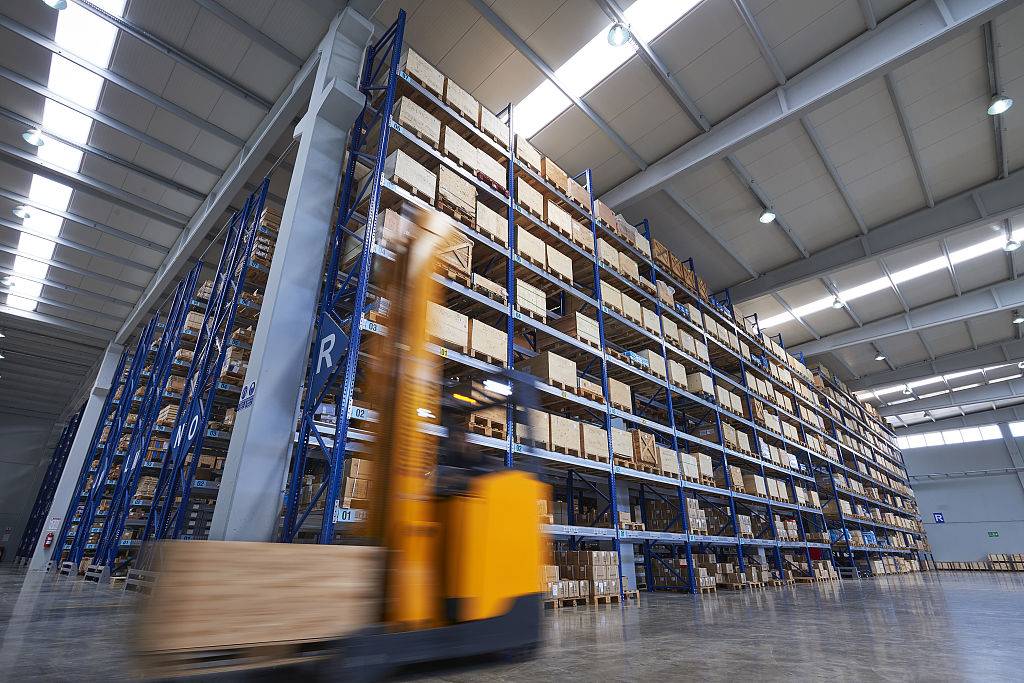
Groceries and other essential goods arrive in Shanghai. Photo credit: Alibaba Group
This week, Alibaba Group said it would add 3,000 couriers and warehouse workers to help supply food and other essential goods to people locked down in Shanghai.
In other news, Alibaba’s logistics arm, Cainiao Network, rolled out a cross-border delivery solution for small and medium-sized enterprises (SMEs).
Alibaba Adds 3,000 Workers to Expand Delivery Capacity in Shanghai
Alibaba said on Friday that it would add 3,000 workers to help distribute goods to locked-down residents in Shanghai.
The group’s food delivery platform Ele.me will dispatch 600 couriers from other cities to Shanghai. At the same time, Alibaba logistics service Cainiao will bring in another 500 delivery people.
The rallying cry was the latest move from Alibaba to keep the city supplied. Earlier in the week, Alibaba’s grocery chain Freshippo said four of its membership stores in Shanghai had started offering self-pick-up for bulk groceries orders. Priority was given to healthcare workers, volunteers and special needs groups.
Freshippo said it started to offer the self-pick-up option in Shanghai as an add-on to the delivery services to cater to the needs of communities in lockdown. By April 6, more than ten Freshippo stores and Store X membership stores provided delivery services for group buying grocery orders, covering 5,300 residential communities in Shanghai.
Cainiao Boosts E-Commerce Logistics for SMEs
The logistics branch of Alibaba launched digital end-to-end logistics services for SMEs this week to help raise their efficiency and visibility on e-commerce platforms.
SMEs account for roughly 90% of all companies worldwide, according to the World Economic Forum, but they struggle to find cost-efficient cross-border delivery options.
To this end, Cainiao will now be offering SMEs special services from pick-up and warehousing to customs clearance and last-mile delivery in 120 countries.
“We want to extend our resources and expertise to help level the playing field and reduce the barrier to international trade,” said Dr. Ding Hongwei, General Manager, Cainiao Technology.
Cainiao has also partnered with software-as-a-service company, ShopLazza, to coordinate other aspects of direct-to-consumer e-commerce, such as consumer loyalty management and operational analysis reports.
Alibaba’s Tmall Pilots Carbon Labeling to Drive Sustainable Consumption
Alibaba’s B2C e-commerce platform Tmall launched eco-friendly product labels to help consumers check the impact of their purchases on the environment and make sustainable choices.
The platform started labeling electric goods this month and will gradually add other shopping categories.
“We want consumers to feel the impact of their purchasing decisions and drive them towards eco-friendly purchases,” said Sun Yan, head of consumer electronics ESG in Alibaba’s China Digital Commerce unit.
Most local consumers try to buy from environmentally responsible companies, a survey by consultancy PWC. However, 41% also cited the lack of availability of eco-friendly options as their biggest barrier to doing so.
To overcome this challenge, merchants can apply to the platform for their products to be given labels. Tmall has categorized over 300,000 energy-efficient home appliances from 3,000 merchants so far.
Read more here
China Tackles Towering Garbage Heaps With Artificial Intelligence
Alibaba Cloud is using artificial intelligence to make waste incineration more energy efficient in China.
More than 100 waste-burning facilities in 30 cities across the country are using AI to take over labor-intensive tasks such as emission adjustments, temperature tweaks and air pressure monitoring.
“Through automation, we’ve changed how garbage treatment plants operate, [to] reduce work pressure on the operators, slash environmental pollution and lower costs for equipment maintenance,” Zeng Zhenyu, Vice President of Alibaba Cloud told Alizila.
Alibaba Cloud uses AI to automate incineration monitoring at waste-burning facilities, leading to more stable combustion temperatures and greater efficiency, meaning there is less need to shut down and restart furnaces.
The issue of solid waste disposal looms – quite literally — over the nation’s towns, which produced roughly 235.1 million tons in 2020 and are on pace to generate 326 million tons by 2030.
Read more here



Decoding Virtual Luxury in China
Luxury brands are extending personalized services online to replicate the exclusive atmosphere that customers find in physical stores, said Christina Fontana, Director, Strategic Partnerships, Southern Europe at Alibaba.
Tmall Luxury Pavilion, Alibaba’s dedicated platform for luxury brands, rolled out a one-on-one livestreaming feature last month allowing customers to try on products virtually in private sessions. Cartier and Burberry were among the early adopters of the feature.
“If you are based in China and want to buy a Cartier watch, but you live far from the store: you can buy it online, but you also want the experience that a physical retailer can offer: the possibility to ask questions and gather information. Livestreaming can give you all of this: a personalized session, virtual try-on and the chance to feel truly unique,” said Fontana.
Fontana was speaking at the World Retail Congress on April 7, an international conference for leaders in the retail industry. She participated in the ‘Rebuilding a better retail lab: Pioneering new luxury’ panel, which explored how the luxury sector is adopting digital channels and the metaverse.
“Brands that want to sell in China must understand that Chinese consumers are different. […] They’re mobile-savvy, they will buy pretty much anything via mobile and they love being entertained as part of the shopping experience,” she said.




